Four Ways the Jewish Passover Anticipates Messiah
Christ our Passover is sacrificed. Therefore let us keep the feast! (1 Cor 5:7-8)
Our Lord’s last supper was a Jewish Passover feast—a Seder (Matt 26:18-29). And each year, I’m blown away by the profound ways our Lord fulfilled the Feast—down to the jot and tittle.
I’ve been blogging for a couple of years now on Divine Appointments: Insights from God’s Calendar. But the topic is still very fresh for me. Nothing in the Bible is old news. God’s calendar reveals fascinating keys to His prophetic plan, and to how He’s moving in our day.
My fascination with this stems from a bit of a personal odyssey. We made a family trip to Israel a few years ago—which was a wonderful experience I heartily recommend!
My feet where Yeshua walked. (Bethsaida)
(Although the bling-y sandals might not be the authentic look!)
After we came home, I realized that in my thirty-odd years as a Christian, I’d spent relatively little time in the early books of the Bible. If I’m ignorant of the Law (Torah), which in Jewish idiom refers specifically to the first five books of the Bible, then how could “these things” instruct me?
“These things… were written for our instruction…” (1 Cor 10:11).
Didn’t I want to be instructed?
So I started a program of regular Torah reading. I found a great website that gives weekly readings and provides fabulous explanations that demystify it all for Christians. And I learned it’s true that gaining a better grasp of the Hebraic context of my faith (Rom 11:17-24) opens a whole new dimension to my understanding, especially of Messiah.
“You will find the Scriptures enlarge as you enter them; the more you study them the less you will appear to know of them, for they widen out as we approach.”
– C.H. Spurgeon
Nowhere is that more true than of the seven feasts of the Lord. And the annual cycle kicks off with Passover.
How Is This Night Different from All Other Nights?
The Lord established the Passover as an annual celebration well before the Law was given on Sinai–in fact, even before the children of Israel left Egypt.
And you shall observe this event as an ordinance for you and your children forever. When you enter the land which the Lord will give you, as He has promised, you shall observe this rite. And when your children say to you, “What does this rite mean to you?” You shall say, “It is a Passover sacrifice to the Lord who passed over the houses of the sons of Israel in Egypt…” (Ex 12:24-27)
In addition to celebrating Israel’s miraculous redemption from bondage, Passover also celebrates Israel’s birth as a nation. So in a sense it’s like our Resurrection Day, Thanksgiving, and Fourth of July all rolled into one!
One thing that fascinates me about Judaism is that, while not all rabbinical practices are Biblical, many are very old. The Mishnah was compiled in the third century A.D., but it reflects beliefs and practices handed down orally much earlier than that. Many practices recorded in the Mishnah are unchanged from Jesus’ day.
Jesus’ Last Supper was a Passover feast—a Seder. (Matt 26:18-29) If you’ve had the blessing of attending a Jewish Seder, you will have experienced a series of rituals that are similar in many respects to those Yeshua and His disciples observed that evening. And understanding those rituals opens a new window on what happened in the Upper Room.
Four Astounding Ways the Jewish Passover Anticipates Messiah
1. The Lamb
You recall how John the Baptist heralded Jesus’ ministry. “Behold the Lamb of God, who takes away the sins of the world.” (John 1:29) For his Jewish listeners, that statement would have brought to mind two wonderful stories from the Hebrew scriptures.
- In the Passover account, to receive the Lord’s redemption from the death that struck the firstborn of Egypt, God’s people had to follow His precise instructions. An unblemished lamb had to be chosen. Its blood had to be painted around the door to their home.
- Isaac was also spared by God’s miraculous intervention. In a poignant moment on their journey to Mount Moriah:
Isaac spoke to Abraham his father and said, “My father!” And he said, “Here I am, my son.” And he said, “Behold, the fire and the wood, but where is the lamb for the burnt offering?” Abraham said, “God will provide for Himself the lamb for the burnt offering, my son.” So the two of them walked on together. (Gen 22:7-8)
In the end, Isaac’s life was spared (redeemed) by a substitutionary sacrifice the Lord Himself provided—a “ram caught in a thicket.” (Gen 22:13)
The Seder traditions emphasize the role of the unblemished sacrificial lamb. Lamb may be what’s for dinner, and a lamb shank is on display. Interestingly, the Lord gave specific direction that not a bone of the Passover lamb should be broken. (Ex 12:46) That’s why John makes a point of telling us the Romans did not break Jesus’ legs. (John 19:36)
“Just as the blood of the Passover lamb caused the physical plague of death to pass over the homes of the Israelites who trusted in God’s redemption, so the blood of Yeshua the Messiah, the great Lamb of God, causes the spiritual plague of death to pass over those who put their trust in Him.”
– John J. Parsons, Worthy Is the Lamb: A Messianic Passover Haggadah
Oh, and remember how the Israelites were to select their lambs on the tenth day of the first month in order to sacrifice them for the Passover, four days later? Messianic Jews hold that Yeshua entered Jerusalem riding a donkey, greeted by palm fronds waving, on the day the Jews assembled for the feast were procuring their unblemished lambs.
On the 10th of Nisan He entered the city, riding on a donkey to announce His Messiahship (this was the time the [Passover lamb] was being selected for the sacrifice). Examined for four days before His sacrifice… Yeshua was thoroughly inspected by the kohanim [priests] but was found to be… without spot or blemish.
– John J. Parsons, Hebrew4Christians.com
2. The Wine
Since the time the Mishnah was recorded, the basic flow of a Seder meal has revolved around four (small 😊 ) cups of wine, which recall four promises the Lord made to Moses. (Ex 6:6-7)
- I will bring you out (Sanctification)
- I will free you (Deliverance)
- I will redeem you (Redemption)
- I will take you as my own people (Restoration)
Messiah Himself fulfills all four promises! He is our Sanctification (1 Cor 1:30), our Deliverer (2 Cor 5:21), our Redemption (1 Cor 1:30). And ultimately, it is He who will restore Israel (Rom 11:26).
Ritual blessings are recited throughout the meal. For each cup. For the bread, which is broken between the first and second cups. (More on the bread in a minute….) The meal is eaten between the second and third cups.
It’s clear from the gospel accounts Yeshua’s last meal followed something like this tradition. Ever-meticulous Luke records it.
And when He had taken a cup and given thanks, He said, “Take this and share it among yourselves.”… And when He had taken bread and given thanks, He broke it and gave it to them, saying, “This is My body which is given for you; do this in remembrance of Me.” And in the same way He took the cup after they had eaten, saying, “This cup which is poured out for you is the new covenant in My blood.” (Lu 22:17-20)
Before the bread, a cup with a blessing. Then the bread with a blessing. Then the meal, and another cup with another blessing. With the cup after the meal, Yeshua established the new covenant in His blood.
There’s a powerful spiritual message behind these cups.
The… cups parallel the betrothal process in ancient Israel. When a man proposed marriage:
At the betrothal…
- The man would negotiate a bride price. Yeshua paid the bride price when He died for us and rose again (Matthew 26:28, Mark 14:24, Luke 22:20).
- He would hand the bridal candidate a cup of wine and say, “This is the cup of my covenant.” Y’shua did this at the last supper–said these exact words!
- If she drank, it meant “I consent.”
At the wedding, they’d drink of another cup.
http://messiahalive.com/passover4cups.htm“I tell you, I will not drink from this fruit of the vine from now on until that day when I drink it new with you in my Father’s kingdom.” (Matt 26:29)
Yeshua is waiting to drink the wedding cup–or, in Seder terms, the Cup of Restoration–with us in His Father’s kingdom!
After the covenant was established and the betrothal in effect, guess what the groom’s job was? To prepare a place for the couple to live together! This would often mean building a room onto his father’s house. He could return to collect his bride only after his father deemed the work complete.
And the bride? She would begin to wear a veil to show that she was “set apart” for her husband, who had bought her with a price. Also…
She would maintain a constant state of preparedness, since the wedding date would not be revealed to her until the bridegroom actually appeared at her door to take her to their new home. For his part, the groom would try to show up unexpectedly to surprise her, carrying her off suddenly “like a thief in the night”… The only advance warning she would get was the sound of his voice shouting her name and the blast of a ram’s horn – a shofar.
http://hethathasanear.com/Betrothal.html
Doesn’t that put this statement Jesus made in the Upper Room in a new light?
I go to prepare a place for you. If I go and prepare a place for you, I will come again and receive you to Myself, that where I am, there you may be also. (John 14:2-3)
After establishing the new covenant, Jesus has gone to prepare a place for His bride. He’ll return when it’s time to snatch us away, and we’ll join Him in the wedding cup at the Marriage Supper of the Lamb!
Our bridal canopy awaits!
The Feasts have a great deal to say about this romance between our Heavenly Bridegroom and His bride. I’ve got a resource that speaks to this in a nutshell, if you’re interested:
3. The Bread

Traditional handmade matzah bread. The dough must be pierced to keep it from puffing up. Photo: Yoninah, Wikipedia
When the Lord instituted Passover, He coupled it with a seven-day Feast of Unleavened Bread. This was to remind the children of Israel how they left Egypt in haste. But leaven is also commonly used in Scripture as a metaphor for sin. (Hosea 7:4, Matt 16:6; Gal 5:9; 1 Cor 5:6-7) And during those seven days, none of it was to be found in a Jewish home.
You really are not going to believe this, but I promise I’m not making it up. Before a Seder meal in a Jewish home begins in earnest, the matzah is broken. Three pieces of bread, untainted by leaven, are presented beautifully on the table. The middle piece is pulled from the stack and broken in two. One half of the broken matzah—the afikomen, “that which comes after”—is shrouded in clean white cloth and hidden away.
Look at the matzah and see that it is striped: “By his stripes we are healed”; pierced: “They shall look upon me whom they’ve pierced,” and pure, without any leaven, as His body was without any sin. And the Passover custom of burying, hiding and then resurrecting the second of three pieces of matzot (the middle piece), presents the Gospel.
– John J. Parsons, Hebrew4Christians.com
The Jewish people generally accept the three matzah as symbolic of Abraham, Isaac and Jacob. Isaac’s piece is broken to speak of his willingness to offer himself in sacrifice in obedience to the will of his father, Abraham. (He wasn’t a small boy when he accompanied Abraham to Mount Moriah. He could have resisted if he chose to.)
But this is a type. Yeshua told us the deeper meaning of the broken piece of unleavened bread.
“This is My body which is given for you; do this in remembrance of Me.” (Luke 22:19)
“I AM the bread of life.” (John 6:35)
Toward the end of the Seder feast, the children are invited to hunt for the afikomen. The finder receives a reward.
Consider that the broken matzah, the afikomen, is an image of the Suffering Servant mentioned in the prophet Isaiah. Consider that this piece is taken, wrapped up, and carefully hidden from view, only to be discovered at the end of the Seder by little children. This is an image of the death, burial, and resurrection of Yeshua from the dead.
– John J. Parsons, Worthy Is the Lamb: A Messianic Passover Haggadah
4. The Water
It was the Jewish tradition, then as now, that meals begin with ceremonial hand washing (Mark 7:3-4). John is not as precise about the evening’s timeline as Luke is, but it’s likely this is the point where Jesus “poured water into the basin,” which would have been in place for the ritual, “and began to wash the disciples’ feet and to wipe them with the towel with which He was girded.” (John 13:5) In other words, Jesus went beyond the ritual and got at what was really dirty on a group of men who’d spent the day walking dusty streets in sandals. As He will with our lives, if we let Him!
A New Sacrament
Okay. Here’s where I’m going to say something controversial….
“Do this in remembrance of Me.” (1 Cor 11:23) How often have you heard a pastor say this as you clutched your tasteless white wafer in one hand and your swallow of grape juice in the other?
But what was the “this” Jesus asked us to do in His memory?
I’m convinced our Savior would not recognize communion as we practice it in most churches today. This commandment was given as Yeshua broke a piece of matzah bread in the middle of a full communal meal!
Therefore Keep Which Feast?
I’m also quite convinced that our Savior would not recognize “Easter” with its bunnies and died eggs–ancient pagan fertility symbols coupled with a name derived from a pagan goddess. 🙁
Many of the church traditions surrounding “Easter” were mandated under Constantine, in a deliberate effort to distance Christians from the Jewish background of their faith. “Let us then have nothing in common with the detestable Jewish crowd,” he wrote.
The new state religion, a bizarre blending and amalgamation of paganism and Christianity, devoid of any remaining “Jewish” influences, became the dominant religious power in Europe for over one thousand years.
– HISTORY OF NEW COVENANT PASSOVER OBSERVANCE
During this intensely antisemitic period in church history, the dates of Good Friday and Easter were also fixed so they would correspond as rarely as possible with the date of Jewish Passover observance. And a long-standing tradition among some Christians of celebrating the Passover on its Biblically-determined date of Nisan 14 (rather than celebrating “Easter”) was forbidden.
“All the brethren in the East who formerly celebrated Easter [Passover] with the Jews, will henceforth keep it at the same time as the Romans…”
– Decree from the Council of Nicaea, under Constantine
To those who say, “But Easter bunnies and egg hunts are all harmless fun,” which was certainly my view for many years, I will now respond with Paul’s words:
What fellowship has light with darkness? Or what harmony has Christ with Belial, or what has a believer in common with an unbeliever? Or what agreement has the temple of God with idols? (2 Cor 6:14-16)
How can we festoon our observance of the Lord’s glorious resurrection with all these trappings of pagan goddess-worship, and imagine that our holy God, who gave His only begotten Son to “call us out of darkness into His marvelous light,” (1 Pet 2:9) will be pleased?
An interesting note on all this. While the date for Easter was deliberately fixed to separate it as much as possible from the Jewish / Biblical observance of Passover week starting on Nisan 14, the two actually correspond this year. (That is, Passover will begin in the evening of Good Friday, and Resurrection Day will correspond with the Biblical Feast of First Fruits. More on that next week!)
Among all the other unusual things that have happened in the past few years in fulfillment of Biblical prophecy and with signs related to the Jewish calendar, add this one to the list. Good Friday and Passover have fallen on the same date four times in the past seven years. Before that, you have to go back a century to find another occurrence! Odd, yes?
Where does all of this leave me, personally? Like I said at the top of this post, this has been a journey for me, but here’s where I stand today. I’m delighted to celebrate Resurrection Day anywhere with anyone, but I will have nothing to do with anything branded “Easter.” And while we can’t really keep the Biblical feasts today, since they are so intertwined with the Temple and the Mosaic sacrificial system….
…things which are a mere shadow of what is to come; but the substance belongs to Christ. (Col 2:17)
…I do my best to remember and honor the Feasts of the Lord, as the first-century church also did. It’s my observation that, whenever I try to do Bible things in Bible ways, I receive a blessing. So I’ll be eating my pierced, striped, unleavened matzah tonight, remembering Him–and we won’t be dying any eggs!
“Do this in remembrance of Me.” (1 Cor 11:23)
Therefore let us keep the Feast!
… in purity and holiness,
as His spotless bride bought with a price (1 Cor 6:19-20),
as the “royal priesthood, a holy nation, a people for God’s own possession” that we are.
(1 Pet 2:9)
If you’ve never opened God’s free gift of salvation through Jesus (Rom 3:23, 6:23)–taken the opportunity to join His holy nation–please please please be persuaded to do it now! It’s simple. Just tell God from your heart that you admit you’re a sinner that needs a Savior (“For all have sinned and fall short of the glory of God.” Rom 3:23) that you’re done running your own life, and that you’re ready to make Jesus Lord of your life.
If you confess with your mouth Jesus as Lord, and believe in your heart that God has raised Him from the dead, you shall be saved. For with the heart a person believes, resulting in righteousness, and with the mouth he confesses, resulting in salvation. For the Scripture says, “Whoever believes in Him will not be disappointed.” (Rom 10:9-11)
The decision that saves you is that simple!
Simple… But no one said living it out will be easy. Especially now, in these last days.
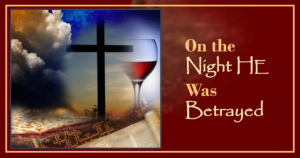
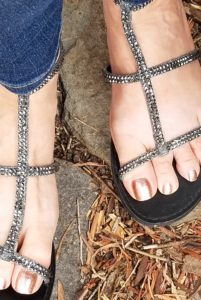
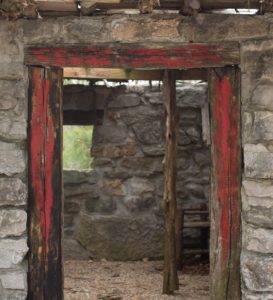

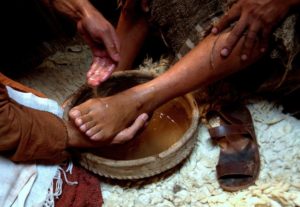
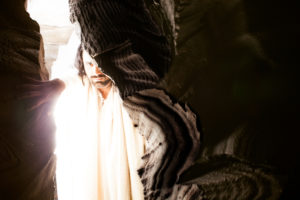
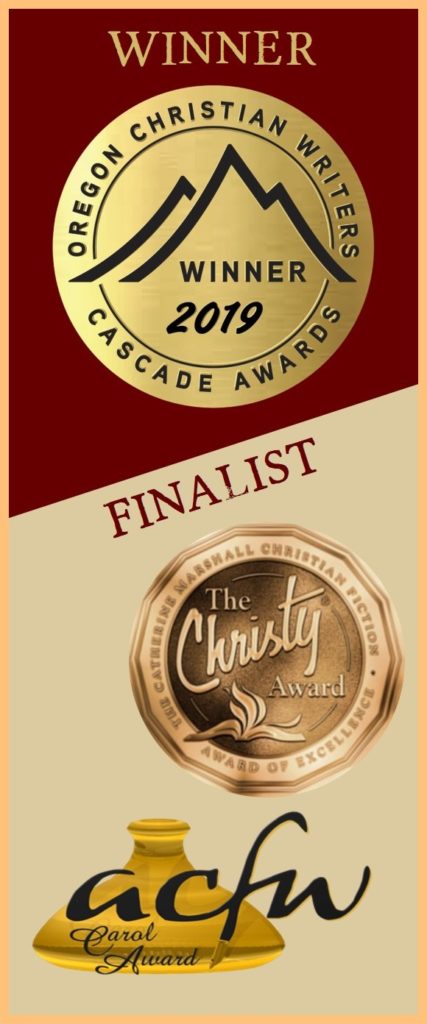
Thank you. This article has both taught and inspired me. Although I knew some, now I feel rich, for the first time I clearly understand and can delight in the Word with a greater intensity and deep satisfaction.
I’m very sorry for the slow response. Trish, but it was an eventful weekend. As in, THE event!! I’m delighted that the article blessed you. You’re right, it IS rich, the way our God works out every detail in advance. Hallelujah!
I was blown away by the content and feel sad for the years spent in not quite getting it because of ignorance.I am so happy happy to have finally come on a site and am feeling reignited and hungry for more. Thank you Linda. May God continue to use you mightily.
Robina, I’m delighted the post blessed you! Please don’t feel sad–please take Paul’s advice in Phil 3:13-14–forget what lies behind and press forward to what is ahead, press on toward the goal. Yeshua came so we can walk in abundant joy! He has the past covered! (Did you happen to read last week’s post, “The Monster in the Rearview Mirror”? If not, I would encourage you to do so.
This is a great reawakening for me. But I have plenty of questions already wriggling in my heart to ask. The feasts are part of the law, the same law we were severally warned in the epistles not to live by. Can you reconcile please?
Hi, Abiye! That is an important comment. I do NOT believe that followers of Yeshua are required to keep the Law (Col 2:16)–in fact, it’s not even possible to keep it now, since there’s no Temple!! But I DO think we should heed these scriptures: Rom 15:4, “these things were written for our instruction” (referring to the Hebrew scriptures) and “the Law is our tutor to lead us to Christ” (referring to the first five books of the Bible). If we don’t at least *study* the Law and the Hebrew scriptures, how will we be instructed by them? No, we’re not commanded to keep the Feasts of the Lord, but they’re very rich ground for study.
I also think many of our traditional church practices are very much steeped in paganism that cannot please God. I would much rather observe Passover with so many rich reminders of Messiah than a holiday called “Easter” which is named after a pagan goddess, and surrounded by pagan symbols. I’m happy to celebrate Resurrection Day, but every church in my area has to steep that celebration in pagan names and symbols… so sadly, I stay home on Resurrection Sunday.
Also, please note that in spite of his strong stance that Yeshua’s followers are not in bondage to the Law, Paul kept it himself! He always sought out the synagogue on Shabbat; he hurried to attend the Feast of Shavuot / Pentecost in Jerusalem (Acts 18:21); he took a Nazirite vow in accordance with Numbers 6 (Acts 18:18, Acts 21:23-24).
As Col 2:16 states, I think this is something each believer must weigh for him or herself. My own conviction is that, while I may not be obligated or even able to observe the Law, there is a blessing attached when I am able to observe some part of it. I do try to honor Shabbat and the Feasts. But “whatever is not from faith is sin” (Rom 14:23) so your answer might well be different!
Blessings upon you, brother! Linda
Fantastic! Thank you!
Wonderful, Lisa! I’m so glad the message blessed you! Thanks very much for taking a minute to leave a word of encouragement. 😀